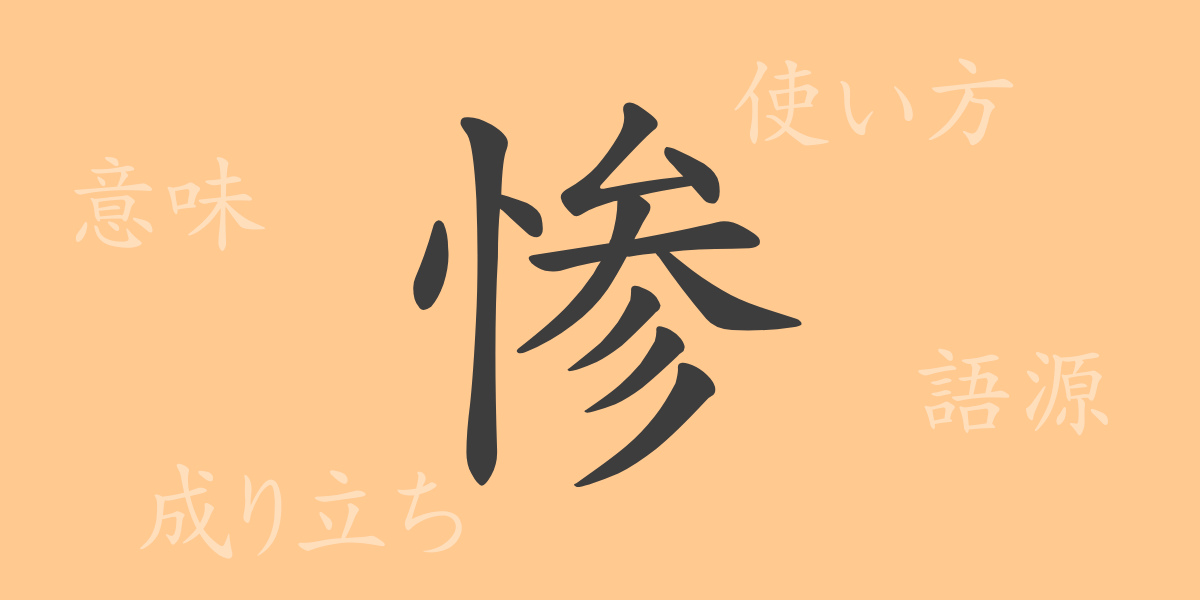The beauty of the Japanese language lies in its complexity and rich expressions. Among its components, common kanji are essential elements in Japanese communication. This time, we focus on the kanji “惨(さん)” to unravel its deep meanings and usage. For those interested in Japanese culture and language, exploring this kanji will be a fascinating journey.
Origin of 惨(さん)
The kanji “惨(さん)” originates from ancient China. It is composed of the radical for “sadness” or “compassion” (念(ねん)) and the character “戔(せん),” which further intensifies the meaning of sadness. This combination evolved into the kanji “惨(さん),” symbolizing extreme sorrow and suffering. Over time, its form changed, but it has always been used to express profound emotions.
Meaning and Usage of 惨(さん)
The kanji “惨(さん)” means “cruel,” “miserable,” or “terrible.” It is used to describe extremely harsh situations or human suffering. For instance, “惨事(さんじ)” refers to a major disaster or accident, and “惨状(さんじょう)” describes a dreadful scene or condition. Thus, “惨(さん)” functions as a strong word to convey negative circumstances.
Reading, Stroke Count, and Radical of 惨(さん)
Here are some details about the kanji “惨(さん)”:
- Reading: The on’yomi (音読み) reading is “サン,” and the kun’yomi (訓読み) readings include “みじ.め” and “むご.い.”
- Stroke count: “惨(さん)” has 11 strokes.
- Radical: The radical of “惨(さん)” is 心(りっしんべん), which relates to the heart and emotions.
Idioms, Phrases, and Proverbs Using 惨(さん) and Their Meanings
There are many idioms, phrases, and proverbs that include “惨(さん),” each carrying deep meanings. For example, “悲惨(ひさん)” means extremely sad and pitiable, “惨敗(さんぱい)” means a complete defeat, and “惨事(さんじ)” refers to a major disaster or accident. These expressions are frequently used in daily life, literature, and media.
Conclusion on 惨(さん)
This exploration of the kanji “惨(さん)” delved into its origins, meanings, usage, and related idioms. This kanji is a powerful word used to express human sorrow and suffering. However, language is a means to share and understand emotions. By understanding kanji like “惨(さん),” we can enhance our expressive capabilities and deepen our communication with others.

























